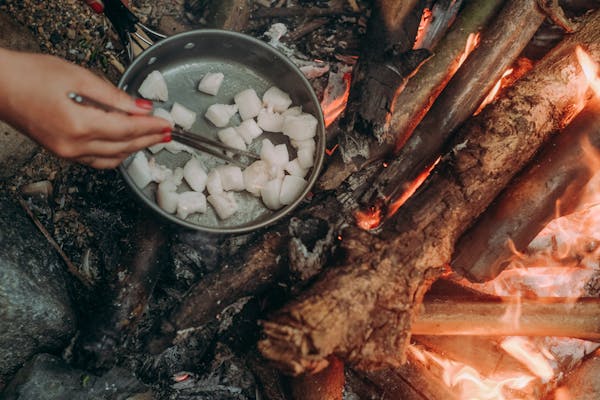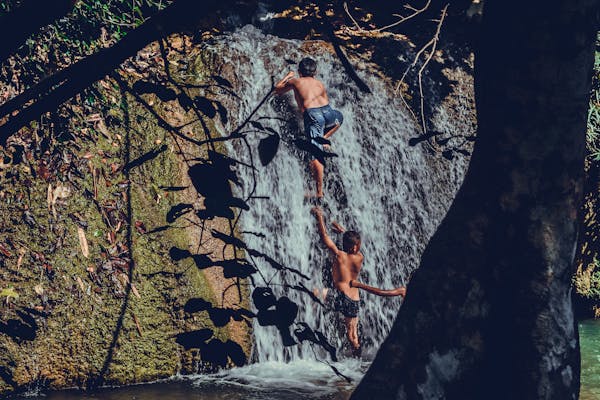Learn useful wilderness survival skills. Perfect for campers, hikers, backpackers and anyone wanting to improve their outdoor experience or to be better prepared in a wilderness emergency.
This weekend bushcraft course will cover most of the major survival needs including shelter, fire and water. You will also learn primitive skills like flint and steel, bow making, knots and cordage. Discover more at Bushcraft for Schools.
Basics
Whether you are a seasoned backpacker, hiker or simply love the outdoors, it is essential to know how to prepare for a wilderness adventure. While you may have read or seen techniques on you tube, mastering these skills requires hands on experience, coaching and practice in a supportive and safe environment.

Accredited by NCFE, this course is designed to teach you practical survival and wilderness living skills. You will learn to light fires using friction, identify edible plants and their uses, build shelters, purify water and safely hunt rabbits, fish or birds as well as use knives and saws. This Level 2 course is designed to be more of a fun learning experience than an endurance challenge and can be joined solo or with a group. The course runs from Friday evening until Sunday afternoon.
Shelters
During a weekend bushcraft course, you can learn the skills needed to live off the land. This is a subset of wilderness survival, but differs in that it is more focused on the enjoyment of nature and reconnecting with primal instincts.
Learn to build a variety of natural shelters that are effective in cold, temperate, and snowy conditions. Discover techniques for finding firewood, food, and water in the wild.
Become proficient at using and maintaining a variety of tools including axes, knives, saws, and bow drills. Gain confidence and proficiency in the use of these tools as you participate in the hands-on instruction.
You will also learn a range of hunting techniques including tracking mammals and making traps and snares. You will experience the joy of cooking over an open campfire, while learning how to prepare and eat a range of foods that you have collected or caught yourself. Other topics include Wild Plant Identification and Uses and the Basics of Knife and Axe Handling.
Food
Food is an important part of bushcraft and wilderness living. Our course shows you how to prepare and eat food from the natural environment using primitive cooking techniques and tools. You will learn to use a variety of wild foods and also how to trap, hunt and gather.
You’ll spend your weekend in an expedition-style base camp, tucked away in mixed broadleaf and coniferous woodland. You will sleep in a bespoke tented tent which acts as both your sleeping area and learning space. There is a kettle always on the fire to make hot drinks, so you don’t need to bring your own.
You will learn how to cook your food over a campfire, making meals from ingredients foraged in the woods around you. You will also learn to build survival shelters like lean-tos and debris huts, and practise essential knots. You will also learn to track and hunt game, forage for wild food, and find and purify water.
Water
The most fundamental survival skill is finding water. The human body is more reliant on water than on any other substance for survival, and it’s essential to know how to find it and purify it in different environments. Learn how to find, collect and prepare water for consumption during a weekend bushcraft course or a wilderness living skills training class from a number of wilderness survival schools.

Coastal Survival School: Fraser Christian established this wilderness survival and cookery school in 2008, and the academy offers a range of courses including a family bushcraft course, a Wild Plant Identification and Uses class and a Winter Wonderland survival course with tips on building a quinzhee, snow trench or super shelter.
Check the class details for exact dates and times, but most are held at locations within a one-hour drive of the city listed in the class name. Most outdoor survival classes are rated for a variety of levels of fitness and experience, but the level of physical activity may be challenging for younger participants.